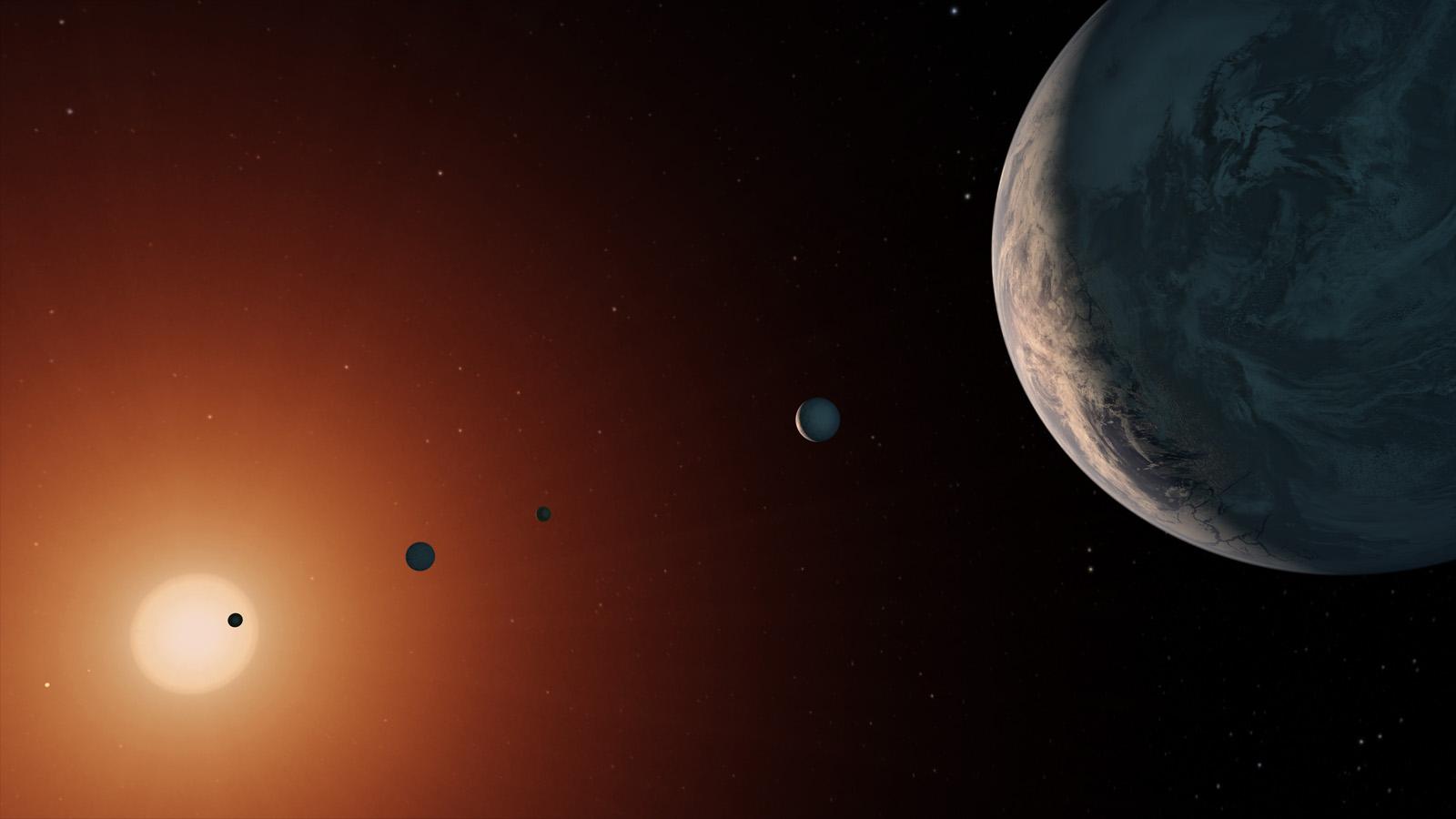Aerospace Engineering involved in four new studies of planets and exoplanets
Researchers of the faculty of Aerospace Engineering at TU Delft are involved in four of the eight new projects that will start within the Dutch planetary and exo-planetary programme ‘PEPSci’. That was decided by the NWO Domain Science Board last month. The projects include research into the icy moon Enceladus, the properties of exomoons and gases that escape exoplanets interior to build their atmosphere. Ultimately, these projects all look for life beyond Earth or the best conditions for it. More than 2 million euros was awarded in this call.
Dr Stéphanie Cazaux will lead research on icy moons exospheres. The researchers will simulate processes that take place on Enceladus, an icy moon of Saturn, at the laboratory scale in a wind tunnel and with cryogenic ice setups. Dr Bart Root will lead research that investigates the process of how planets acquire their atmospheres. The faculty will receive roughly 500,000 euros for two PhD's, for which the selection procedure will start soon. They will start in September and the first results might be available in 2021.
Dr Dominic Dirkx is co-applicant in research observing exomoons directly using far-infrared wavelengths and models and Dr Daphne Stam is co-applicant in research developing a realistic model for the analysis of light signals from exoplanets with life.
"What I personally think is exiting is that the proposals consider the solar system as a laboratory and that by studying our own planets and moons we can get a better idea of what other galaxies look like and especially where we can find galaxies with the potential for conditions for life," says Bart Root.
In addition to extra manpower for research, these projects also mean that cooperation with other institutes will improve even further. The faculty will also become even more attractive to students interested in planetary and astronomical research with satellites.
